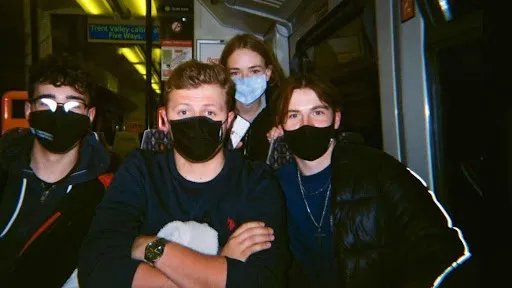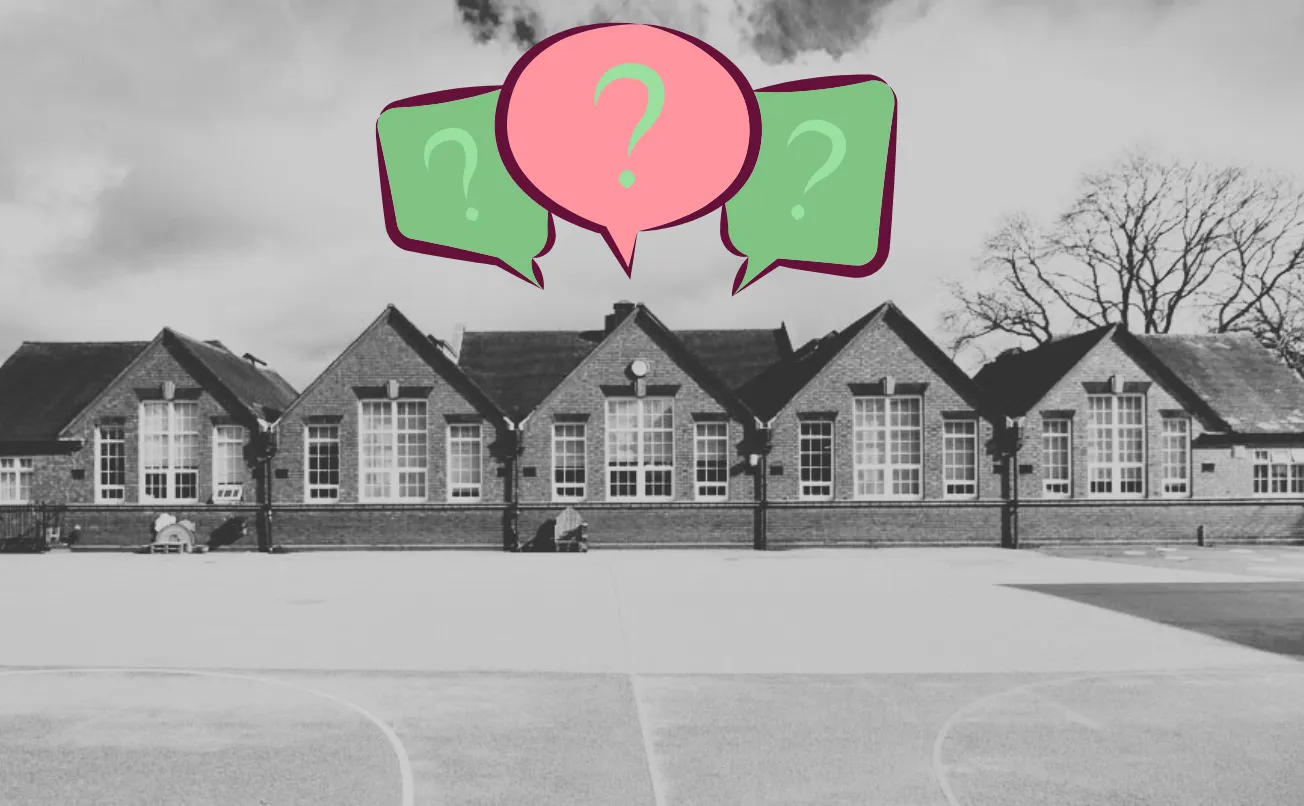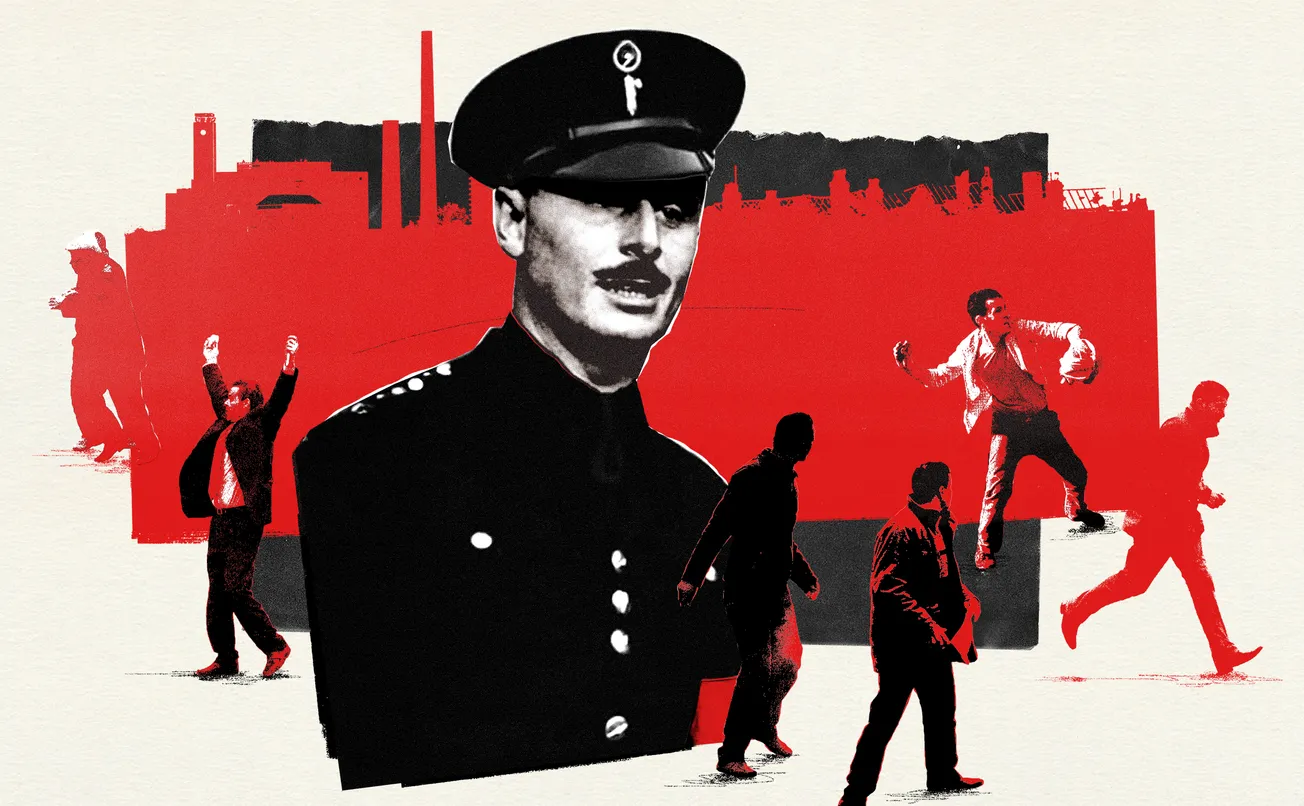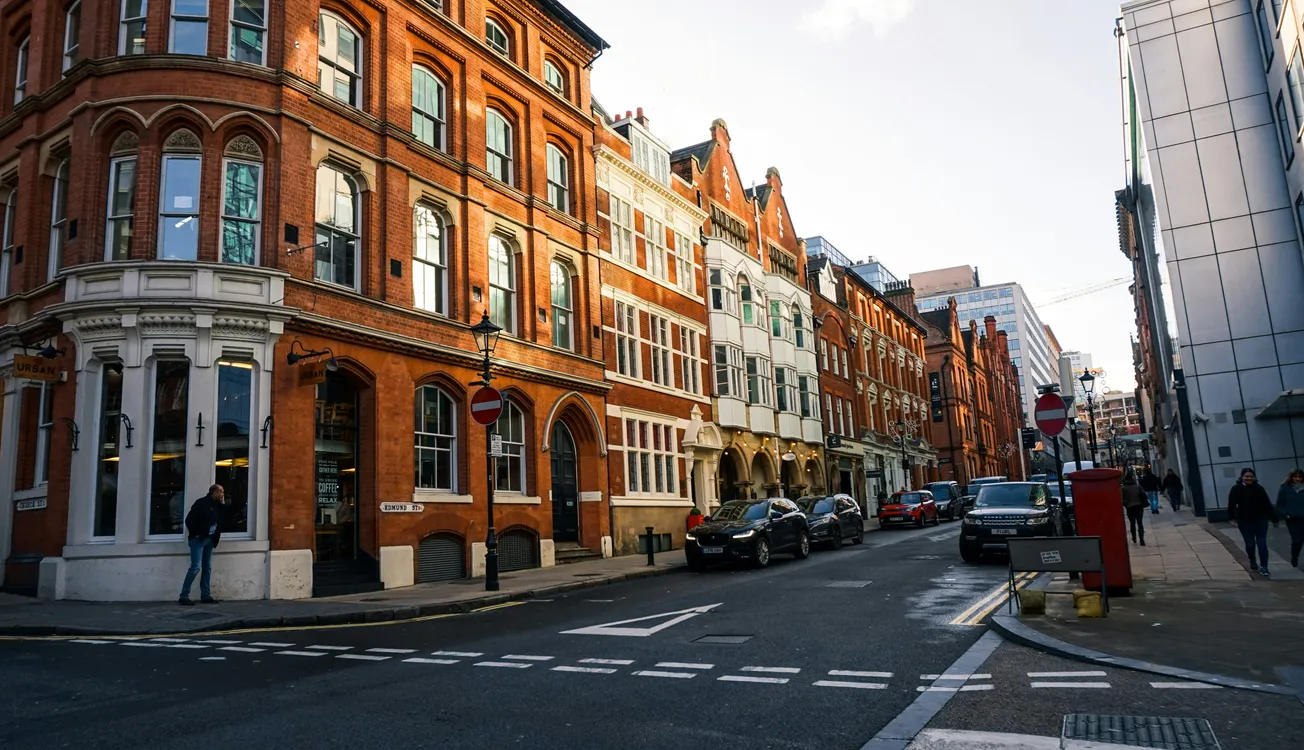Dear Patchers — for most people who attend uni, the first year is a time for making new friends and exploring new surroundings. For those who entered their first year in September 2020, it was a very different experience. Our intern, Alex Taylor, was one of those bright eyed and bushy tailed freshers who had their freshers experience curtailed by COVID. Students at other unis seemingly had it easier — parties were illicit but still frequent. At Birmingham, a militant security presence was imposed on campus. Blinds were removed from flat windows so security could count the inhabitants. Security would frequently enter random flats — and sometimes bedrooms — uninvited, to break up parties. While that strange period has ended with the waning of the pandemic, Alex isn’t sure that the freshers experience of old has returned. In today’s story, he speaks to UoB students past and present, pondering the question: did Freshers survive COVID?
Editor’s note: To find out in full what went on in halls during COVID, you’ll need to become a paying member of The Dispatch. For £8 a month — or £80 a year — you’ll be joining 915 happy readers who care about quality journalism in Birmingham. We are aiming to reach 1,000 by the time our first birthday rolls around in a month — to be one of them, hit the button below.
Brum in brief
⚽West Bromwich Albion have asked EFL to investigate the death of one of their fans at Hillsborough on Saturday. A number of fans have criticised the response to 57-year-old Mark Townsend when he suffered a medical emergency in the stands, in particular how long it took for him to receive medical attention. Another West Brom fan and off-duty paramedic gave Townsend CPR while supporters also complained of the lack of an accessible defibrillator and that calls to stop the match to speed up treatment went unheeded.
🌊The incredibly wet weather is showing no signs of drying up just yet. Do check for flood warnings — at the time of writing, there are three for the West Midlands. The Middle Avon from Rugby to Bidford, the River Anker and the River Blythe are all at risk of overflowing.
🎤Former Mayor Andy Street has said that his own failed campaign to be reelected mayor of the West Midlands could be a “lesson” for the Conservative Party during its current leadership election. Street made his remarks while addressing the party’s conference on Sunday, adding that moving further to the right would be “political suicide”. Speaking on his successor, Street said he hopes Richard Parker will, “find his voice as a champion for this place and that will mean taking on the Labour government at the right time."
🎣The rapper Azealia Banks has claimed she caught an illness after visiting the Bull Ring Fish Market, which she called the “pathogen Wuhan market”. Banks, who was in Birmingham last week to perform at the O2 as part of her UK tour, said councillors need to “do something” about the “putrid” market that she claims left her with a fever and two days of “bathing, massaging, drinking tea, sweating”.
🎶 Musicians can now gain formal qualifications in sacred Sikh music — known as Kirtan — thanks to the decade-long efforts of Harjinder Lallie at Birmingham's Gurmat Sangeet Academy. After being recognised by exam boards, five traditional Sikh instruments are now allowed to be graded; with plans for further expansion. Lallie said the response to the examination launch has been “overwhelming”, with schools across the globe, from India to the US to the UK, wanting to submit their pupils for examinations.

From clandestine parties to sober socials — did Freshers’ Survive COVID at UoB?
“Around 3am, two security guards came into our flat unannounced,” Jess, a fellow Birmingham fresher during COVID tells me. “They forced everyone out of their rooms, then just sat in the kitchen drinking our coffee, asking if we were having any parties soon. Not so they could report us, but so they knew what time they could join in.”
For those who began their studies at the University of Birmingham in September 2020, the experience massively differed from any year before or after. It was a unique period between being prohibited from socialising in groups of more than six, and the oncoming second lockdown. And I was there in the middle of it.
Typically, ‘Freshers’ Week’ is most students’ first week at university and is a defining moment before their studies begin. There are welcome activities and opportunities to join societies (from the standard, like football or hockey, to the more esoteric, like Doctor Who or Anime), alongside the parties and clubbing, of course. Last week, over seven thousand students arrived in Birmingham to start their new life, but have the halcyon days of pre-pandemic freshers been lost forever?

In a sense, the university could be applauded for its militant approach to rule enforcement during my time: all blinds and curtains were removed from communal areas, while regular patrols in electric vans whined past in constant surveillance. At any moment, you could be ordered by torchlight to stand by your window for a headcount, and security personnel would enter your flat — or even your bedroom — without warning, using key cards that granted them unrestricted access. (Editor’s note: the University of Birmingham reached out after publication to dispute the claims that students were subjected to constant surveillance and that blinds and curtains were removed from halls windows to allow security to see inside, but five sources recalled this happening.)
With guerrilla parties stamped out, and the suspected partygoers lined against a wall, this policing was enough to largely eradicate any semblance of a traditional freshers’ experience. However, a party-paradox eventually emerged. A proportion of security, who were allegedly employed students, would enter flats irrespective of there being a party. This directly broke the isolation procedures they were enforcing, seemingly because they were bored, and wanted to hang out with first-year students. The University of Birmingham did not respond to our requests for confirmation of this.
Four years on, I’ve tracked down those who lived in my flat before and after me to learn what Freshers' Week was like in the pre and post COVID days. I’ll be exploring memories of freshers’ week spanning over 30 years, and asking the crucial question: did freshers’ week survive the pandemic?
‘Posh boys are always gross’
Via Facebook, I’ve tracked down someone who lived in my exact flat, and bedroom, four years before me. She’s called Chloe and we’re speaking via zoom. “It’s weird the idea of someone else being in my room,” she says. We laugh about the malfunctioning sliding bathroom door — four years after her own encounters, it would go on to trap me in my bathroom when my clothes airer fell, preventing it from sliding back across.
Chloe’s from Norwich, but attended the University of Birmingham to study Criminology, where she got her first piercing during freshers’ week. This is quite significant considering she now has a septum piercing, an ear stretcher, a nose ring, and so many others that she could probably pick up radio signals. “We had a brilliant time,” she says. She goes on to tell me that she got on well with her flatmates, how they also had their own respective friendship groups, and how they did arts and crafts activities together: “We bought lots of plastic sheeting and taped it down to the floor in our really long kitchen,” she tells me, explaining how they then covered it in fairy liquid and warm water and made a “slip and slide — it was amazing.”
Chloe describes the culture of proactively socialising that Freshers is known for. “We basically did a tour of The Vale [University of Birmingham’s student village] just from the amount of house parties we ended up going to, we would literally go up to random flats and knock on the door” Chloe tells me. It's easy to forget how many people have lived in The Vale halls from year to year: over 28,000 since her. Then, of course, there were the initiations. She tells me how her flatmate, as part of a Freshers’ rugby initiation, had to down a pint of Guinness with a raw fish floating around in it. “The worst bit is that the fish scales would build up in your mouth,” he’d told her. She pauses, and adds: “Posh boys are always gross.”
Fishy business aside, The Vale has a potent freshers’ culture that has been cultivated over decades. Anna, a friend’s mum, lived on The Vale in the early 1990s — before Chloe and my halls were even built. Without hesitation, she tells me it “involved a lot of alcohol” and that everyone was very proactive in integrating to the university culture. “Freshers’ fair in the deb hall was absolutely packed” she says, describing club nights possibly at “Bobby Brown’s.” It was “overwhelming,” she tells me. Her friend elaborates further, recalling how the Milltown Brothers performed at the university’s Guild of Students. Ultimately, especially where students are concerned, alcohol is a constant, but the mass socialisation, club nights, initiations, and societies — surely it would take more than a pandemic to end the party?
Jon Snow, the party refugee
Then everything changed. As I arrived for the start of my new life on a September day in 2020 (promptly at 9pm: you couldn’t rock up whenever you wanted like freshers before you, you had to book an arrival slot) I was walking into a very different Vale than Chloe or Anna. The Freshers I would find would be unlike any before it, in some ways reshaping the concept of Freshers forever after. I said a quick goodbye to my parents, grabbed my crate of San Miguel, and pushed open the heavy fire-door, stepping into the blinding light of the kitchen.
Before long, my new housemates and I found ourselves at a flat party in a high-rise halls block, nicknamed 'Tory Towers' — every university has one. Naturally, this was the most expensive accommodation, filled with the most affluent residents (the children of bankers, businessmen and B-list celebrities). One of the many perks of living in such a lofty tower, it seemed, was that security who patrolled campus looking for any lockdown infringers couldn’t see in through your windows or easily reach your floor. Our visit was brief, though. We left soon after, not just because everyone was irredeemably posh, but because of the lingering shame still felt around socialising. Either way, it was a lucky break. We were later told the partygoers had been lined up and their student IDs taken from them once they’d left.
This experience was seemingly unlike other universities around the country. School friends constantly shared videos of themselves crammed into sweaty apartments, filled with piles of freshers’ having a seemingly amazing time. While this did occur, it was less frequent, and instead became one of the luxuries of those in ‘Tory Towers.’

Instead, like hundreds of others, we resigned ourselves mostly to our flat for the week. This isn’t to say we didn’t have fun: we’d drink, head into town, play games, watch films and become institutionalised. Security vans droning past simply contributed to The Vale’s ambience and being ordered to the kitchen window (that was stripped of its curtains and blinds, so security could see in) to be counted was just another part of the routine. A Foucauldian tower with a spotlight wouldn’t have been out of place.
A few weeks after freshers’, we were sitting drinking in our flat, the six-person party beginning to die. Suddenly, the apartments opposite us seemed to spring a leak, with a dozen semi-naked inhabitants flowing out of the bottom, some grabbed by security, others flowing around them like rocks in a pasty river. Then, there was a knock on the door. Was it security? Had our time come to be lined against the wall? We hesitantly all answered it, gathering around like an American family listening to carollers. In the doorway stood a young man in his underwear and socks, shivering, seeking sanctuary from the security guards. Unthinking, we let him in.
Birmingham deserves great journalism. You can help make it happen.
You're halfway there, the rest of the story is behind this paywall. Join the Dispatch for full access to local news that matters, just £8/month.
SubscribeAlready have an account? Sign In







